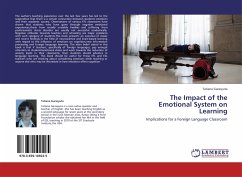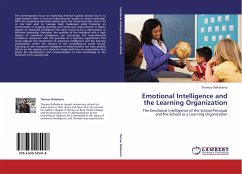The author's teaching experience over the last few years has led to the supposition that there is a certain connection between students' emotions and their academic success. Observations of various EFL classrooms have shown that students who have gone through negative emotional experiences,those from socially unstable families and suffering from posttraumatic stress disorder are usually not successful academically. Negative attitudes towards teachers and schooling are major problems with such category of students.This book presents an overview of classic and recent findings in the field of neuroscience and brain-based learning with regard to the influence of emotions on cognition,new information processing and foreign language learning. The main belief stated in this book is that if teachers, specifically of foreign languages, pay enough attention to students'emotional states and work towards the reduction of anxiety levels in their classrooms, then students should advance in language learning. This book should be useful for those EFL and ESL teachers who are thinking about considering emotions while teaching or anyone else who may be interested in how emotions affect cognition.
Bitte wählen Sie Ihr Anliegen aus.
Rechnungen
Retourenschein anfordern
Bestellstatus
Storno








